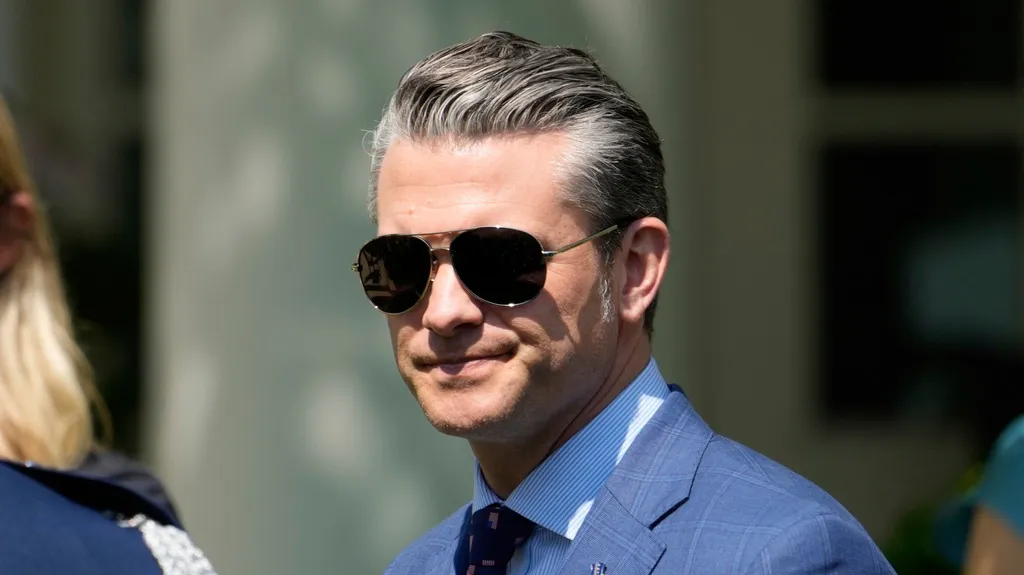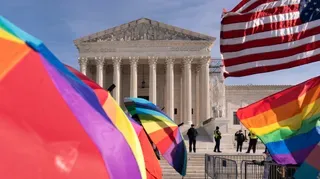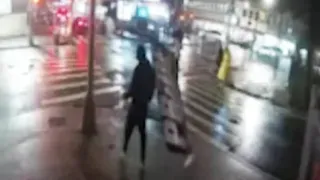October 9, 2013
The LGBT Nerds Who Could & Can & Will
Kilian Melloy READ TIME: 6 MIN.
One part of bringing on change like the defeat of DOMA and Prop 8 is incessant activism and a constant barrage of journalist and politician, issues voter and party constituent. Another part is much less sexy: It involves sifting through reports, conducting research, answering hard questions, and reading - a lot.
But someone's gotta do it.
Enter the Williams Institute, a think tank at the University of California, Los Angeles. Its experts have written dozens of policy studies and law review articles, they've filed amicus briefs for cases like Prop 8, they've testified to political bodies like Congress, and they've gotten cited all over the board by newspapers and magazines (like this one).
The twelve-year-old group was founded in the 2001-2002 school year by its current executive director Brad Sears. The vastly accomplished UCLA professor -- along with the rest of the staff at the institute -- has dedicated a major part of himself to the dryer, nerdier, and penultimate role of figuring out the science and truth behind the LGBT topics that you read about almost every single day.
Sears is a Yale University alum and a Harvard Law School alum. He founded the HIV Legal Checkup Project, a legal services program dedicated to empowering people living with HIV, and served as the discrimination & confidentiality attorney for the HIV/AIDS Legal Services Alliance of Los Angeles (HALSA). In 2009, Advocate Magazine put him on its "40 under 40" list.
Williams launched in 2001-2002, and was "the creation of the philanthropy of Chuck Williams," as Sears puts it. With an accepted critical need for LGBT-focused research, it was clear that a think group was necessary to fill an important void. Williams gave the group $2.5 million to kick things off, and another $13 million since then.
And why invest so much in a research firm?
"The debate would turn to claims that could be proven or disproven with research," Sears told the Mirror about the more modern LGBT movement and its opponents. From cost to business to political capital, the discussion landed in a valley, which the institute felt it could flood with the legitimate research.
And the institute's growth reflects its work. When it was born in 2001, Sears was the only staff member and the institute had a budget of $100,000, and an endowment of $2.5 million. Today, the institute employs 16 faculty and staff members, a budget of over $1.8 million, and an endowment of more than $17 million.
"In issue after issue, we've been able to input data and expertise in arenas that have been largely dominated by prejudice," Sears said.
That's not to say prejudice doesn't continue to play a stubborn and frustrating role in the national LGBT debate, even if hard research is put on the table and its truths can't be argued. There's that Kinsey Report, for example, claiming that one in ten people in the country are LGBT, which the Williams Institute has rebuked with its own research, showing that just under 4 percent of American adults identify themselves as LGBT - a far cry from the Kinsey claim.
"It's not unique to public debate considerations of LGBT rights that research is just one piece. A lot of these beliefs are deeply held and held for a while. The information is relatively new. All we can do is keep improving the data we have," Sears said. "In the absence of information, myths about LGBT people developed on both sides. The LGBT community has free reign in making up mythologies."
But if you want to talk mythology, you have to talk to Lee Badgett, the institute's Williams Distinguished Scholar. She is also the director of the Center for Public Policy and Administration at the University of Massachusetts Amherst, as well as a professor of economics there. In 2008, Curve Magazine named Badgett one of the twenty most powerful lesbians in academia. The Advocate magazine named her one of "Our Best and Brightest Activists" in 1999 for founding the Institute for Gay and Lesbian Strategic Studies (it merged with the Williams Institute in 2006).
Badgett received a Ph.D. in economics from the University of California-Berkeley in 1990, and has a BA in economics from the University of Chicago. She studied race and sex discrimination as a grad student. A few years after her dissertation, she read an article about the LGBT "dream market" in the Wall Street Journal, which she felt wasn't very true - discrimination, according to her past research, led more to poverty rather than affluence.
That got her interested in the topic. After all, it couldn't be that the popular notion about gay people was true, the one that said they were mostly white, mostly old, mostly rich, mostly willing to spend lots of cash - could it?
No, it's not true.
In 2009, Badgett co-authored a report that was titled (and focused on) "Poverty in the LGBT Community." Some of its findings: "After adjusting for a range of family characteristics that help explain poverty, gay and lesbian couple families are significantly more likely to be poor than are heterosexual married couple families. Notably, lesbian couples and their families are much more likely to be poor than heterosexual couples and their families." Badget co-authored an update to this report in June.
"Discrimination is really the economic challenge that the LGBT community faces, not how to spend their money," Badgett told the Mirror. But pundits argued otherwise, and used the false information for their advantage.
So where did that myth come from? "I think it was mainly about visibility. The most visible LGBT people are artists, actors, journalists, writers. Even if they aren't particularly well off, they're at least well educated."
But the really striking bit of truth that Badgett shared is how both sides of the coin were quick to grab this idea of LGBT wealth and run with it. On the one hand, she said, the conservative movement seized the opportunity to show that LGBT people were a "privileged elite" rather than an in-need minority. But on the second side were marketers and advertisers promising to tap into what Badgett said was termed a "profitable community."
"It's always better to get people not to think in stereotypes, which have never helped LGBT people. This one may look good, but it really has this bad effect. If you got rid of it, I don't know that things would magically improve, but it would make it easier for people to understand the legal needs and economic challenges that LGBT people face - maybe leading to the eradication of inequality," Badgett said. "We're also learning that when people hear information that conflicts with their beliefs, it's hard to get them to change their mind about it - there's no magic formula to get around it."
There are many other myths in and about the LGBT community, like the one causing many law enforcement officers to think every trans person they stop is a sex worker, about which the Williams Institute published research in 2012.
"The myth that all trans people are sex workers can really impact their daily lives," Jody Herman told the Mirror. She's the institute's Peter J. Cooper public policy fellow and manager of transgender research. When she moved to Washington, D.C. to attend the George Washington University, she got involved with Helping Individual Prostitutes Survive (HIPS), which specialized in harm reduction for the trans workers of the city. Harm reduction is meeting people where they are in life and, instead of telling them what to do, it instructs them how to lead healthier lives given their circumstances, Herman said.
"I was surprised the vast majority of sex workers were transgender women," she said. "I made some wonderful trans friends. And so that sparked my interest in public policy issues that impact the trans community." She applied for the fellowship at the institute in 2010 and got it, humbly telling the Mirror that the "timing was right."
Most recently, Herman published research showing that trans people are serving in the military at a higher rate than the general population, so there should be an interest in making sure they can serve openly and have the support that they need.
That, in a glimpse, is the Williams Institute and what it looks into, the information it provides, and the research it spends its money on.
"We're really preparing for the future," Brad Sears said. He expects the institute to grow significantly in three ways in the next decade:
First, a lot of work will go into informing legislative debates. LGBT people live everywhere - they're not flocking to a small set of cities, and so everyone will have to deal with legislation affecting them. Second, the institute will focus on research that looks at the legacy of harassment and inequality, even after that equality is achieved. There will be continuous issues and disparities in and for the LGBT community (from bullying to mental health issues).
The final frontier is more international work. Research and scholarship, the mainstay of the institute domestically, will be reflected in conferences and work across the globe (it's already hit the Caribbean and India).
To learn more about the Williams Institute, go to williamsinstitute.law.ucla.edu
Kilian Melloy serves as EDGE Media Network's Associate Arts Editor and Staff Contributor. His professional memberships include the National Lesbian & Gay Journalists Association, the Boston Online Film Critics Association, The Gay and Lesbian Entertainment Critics Association, and the Boston Theater Critics Association's Elliot Norton Awards Committee.

 Copyright South Florida Gay News. For more articles, visit
Copyright South Florida Gay News. For more articles, visit 



